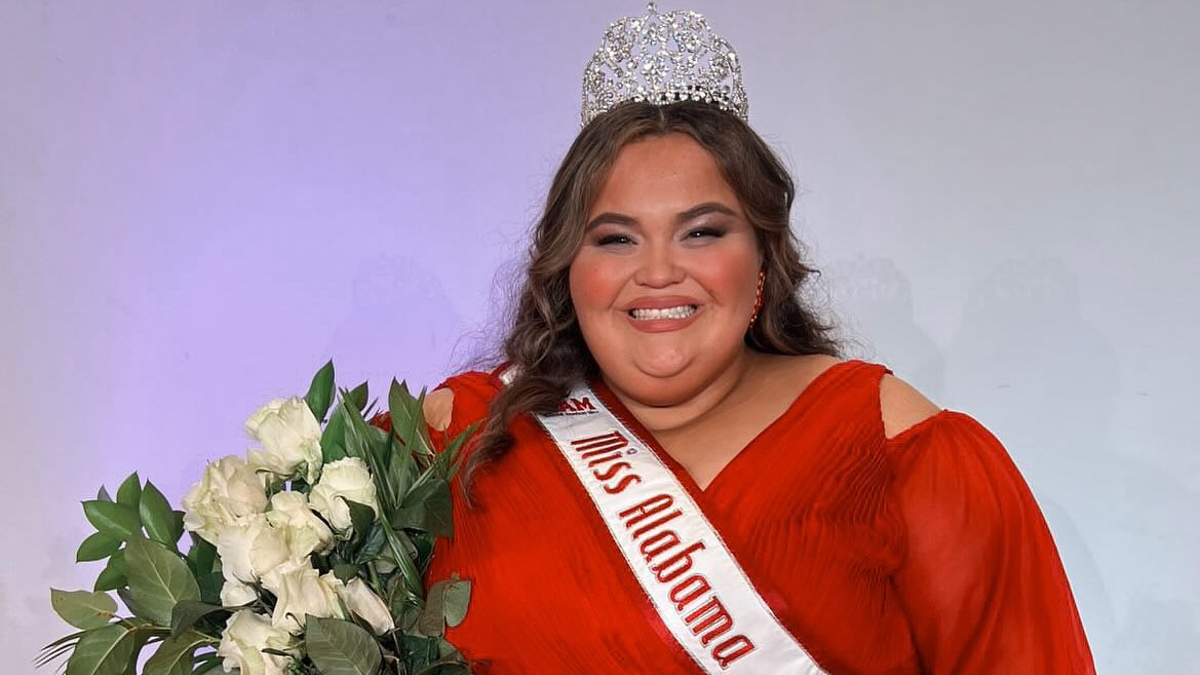Plus-Size Model Receives Horrific Backlash Following Pageant Win

Sara Milliken was crowned Miss Alabama at the National American Miss pageant in her home state over Memorial Day weekend. What should’ve been a celebratory moment for Milliken was overshadowed by online backlash when a post about her victory went viral.
According to local news affiliate WKRG, Sara Milliken answered the National American Miss pageant’s open call for contestants eight years ago. The 23-year-old mental health advocate and plus-size model didn’t make it into the pageant the first two times she competed, but during her third outing, in the 2024 pageant, Milliken made it to the top five before ultimately taking home the crown as NAM’s Miss Alabama.
Unlike other beauty competitions, the National American Miss pageant’s mission is to encourage “positive self-image by enhancing the natural beauty within.” Entrants are required to speak about their hopes and dreams in an on-stage interview, volunteer in their local community, and prepare a resume—it’s very different from the pageants in the Miss Universe Organization, the group behind Miss USA, Miss Teen USA, and Miss Universe. (MUO is mired in its own controversies, as both Miss USA and Miss Teen USA recently stepped down from their posts amid accusations of bullying, harassment, and toxic working conditions; meanwhile, in a leaked tape, an MUO co-owner can be heard outlining a PR strategy of allowing non-traditional contestants, such as plus-size women and trans women, to compete—but never allowing them to win.)
After taking home the crown in the NAM pageant, Milliken told WKRG that she hopes her win sends a message to other young women that “No matter what your body looks like, no matter where you come from, you can do anything you set your mind to.” But when a Facebook post about her victory went viral, Milliken began receiving hateful comments from internet users about her weight, with many mistaking the NAM Miss Alabama pageant for the Miss USA pageant, which has its own Miss Alabama.
Some commenters expressed enthusiasm for Milliken’s win, which sets a positive example for young women in a society obsessed with unattainable beauty standards. Whether they identify as plus-size or fat (some people identify as the latter, hoping to destigmatize the term), there are plenty of young people who will see Milliken’s victory as a personal one.
Still, many more commenters have taken it upon themselves to troll Milliken with disingenuous concerns for her “health,” despite having no access to her medical records. Others are expressing outrage that a plus-size woman won a pageant title, without so much as visiting the NAM website to learn about its mission to disrupt the conventional beauty pageant system by fostering an environment for young women to learn useful life skills while cultivating a strong sense of self-worth that isn’t tied to their appearance.
Following the intense and deeply cruel backlash, Milliken has set her Instagram account to private. She isn’t the only pageant winner receiving hateful comments this week: Bailey Anne Kennedy was recently crowned Miss Maryland USA, making her the first trans, Asian American, and divorced woman to win the title. As expected, conservatives are outraged—because a trans woman winning a beauty pageant by being conventionally attractive sends a dangerous message to children and Meanwhile, people making cruel comments about Milliken can be found on every side of the political divide because hating fat people is one of the few areas where conservatives and liberals tend to be ideologically aligned.
There’s nothing controversial about Milliken’s win—she won a pageant built on inclusivity that seeks to empower young women, which is exactly what she hoped her victory would do. Instead, Milliken has been silenced by hateful backlash. Tell me, which is the better message to send to young people: that real beauty comes from within and your value is not intrinsically linked to your appearance, or that some people are inherently less valid than others because of what they look like?
Have a tip we should know? [email protected]
